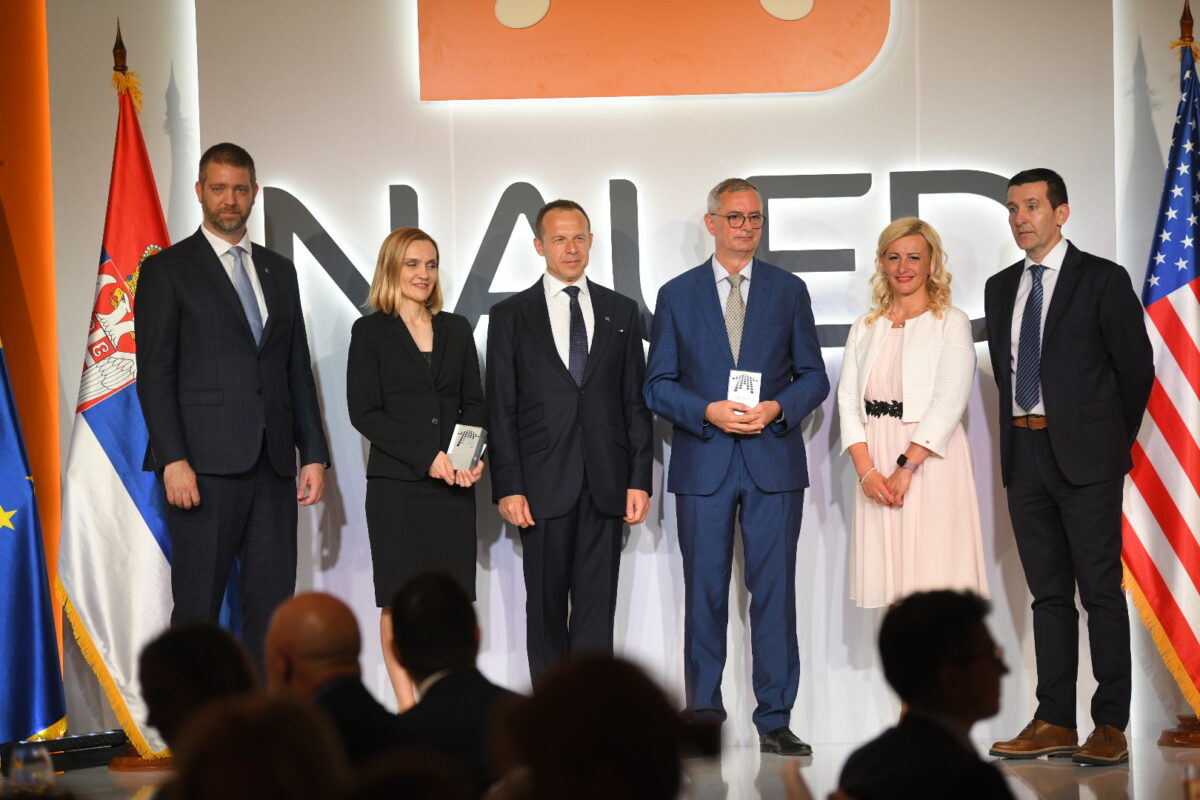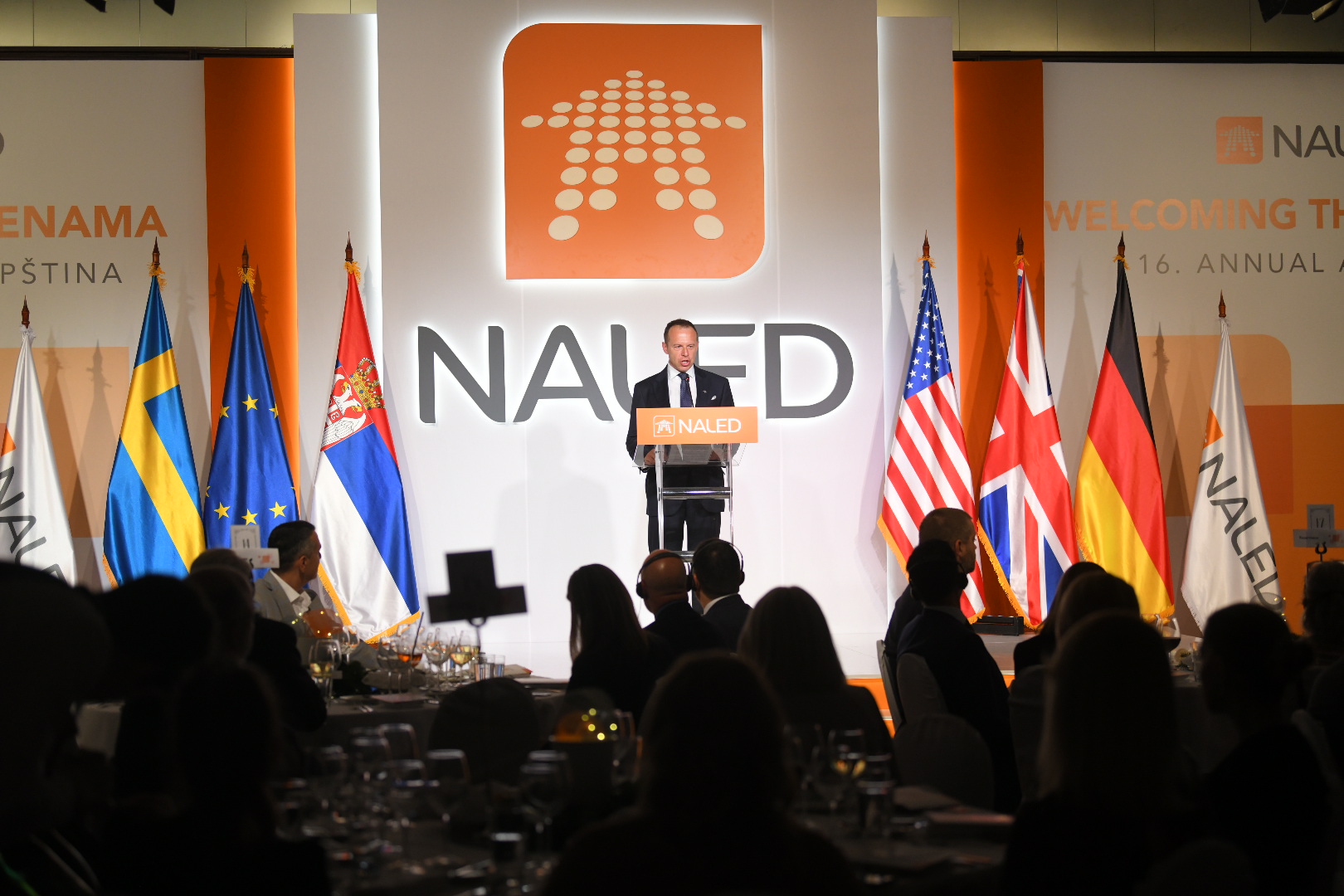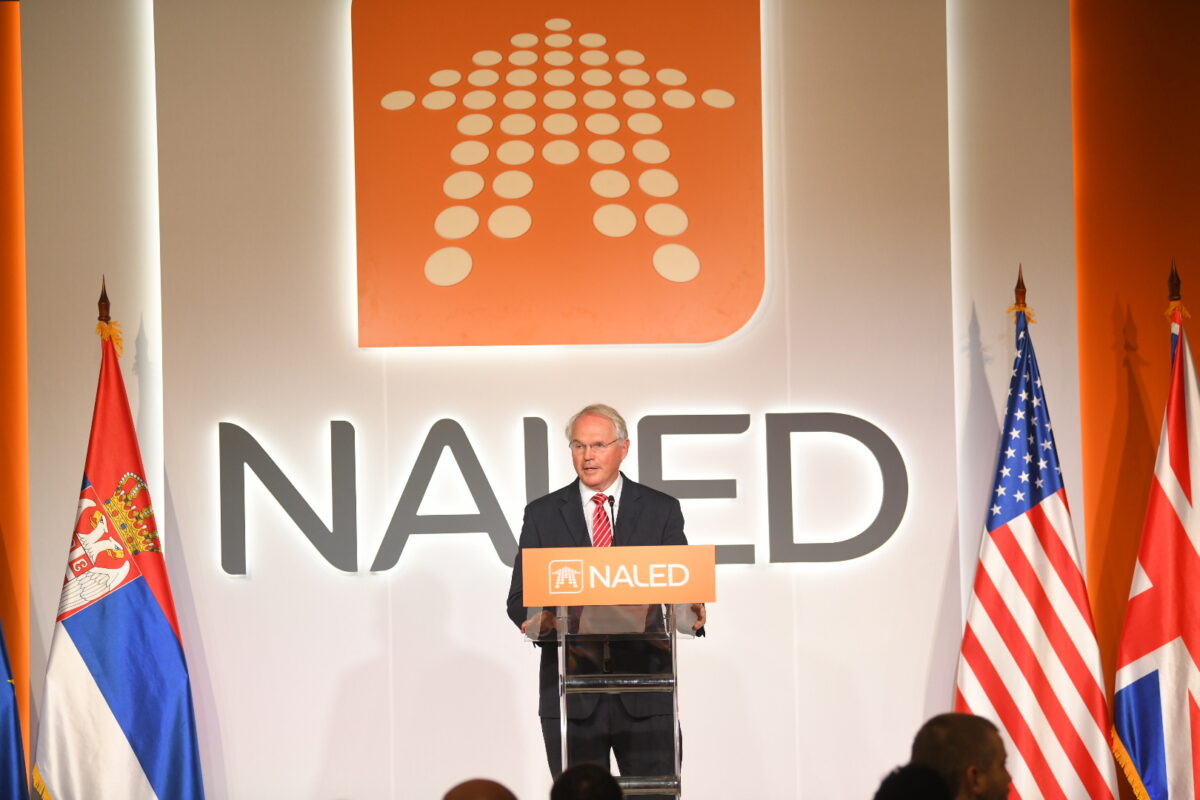Supporting the implementation of the Green Agenda, improving the conditions for investment and construction and improving the quality of adopting regulation, are three key reform priorities out of a total of 12 selected by NALED members in the 2022-2025 Strategic Plan presented to the public at today’s closing session of the XVI annual Assembly of the organization.
Among the priorities that NALED will advocate in the coming years are further development of eGovernment and eBusiness, combating shadow economy, improving public finances, adopting and implementing measures for the development of entrepreneurship and innovation, supporting the local economy, encouraging regional cooperation and EU integration topics important for the economy, health development, agriculture and food industry.

The President of NALED Managing Board, Vladislav Cvetković, pointed out that the organization has had four successful years, implementing an average of 92% from the previous strategic plan each year, with NALED contributing to major systemic reforms, such as the improvement of electronic building permits, reform of seasonal work in agriculture, eInspector and eInvoices, and new ones launched, such as the development of Health Digitization Program, eAgrar and eSpace systems.
A series of other important initiatives have also been initiated, such as pilot projects for various types of waste management, the StarTech program for supporting innovation and the National Cashless Payment Initiative, which supported the introduction of eFiscalization and cashless payments for small retailers and institutions, at 25,000 locations.
– In 2021 only, our expert team worked on the implementation of as many as 44 projects for the improvement of business conditions and economic development, with the support of international donors and our members. With the desire to repeat these results in the years to come, based on analyzes and perceptions of the environment, through a consultation process with our members, partners, civil society, media and employees, we have created a new development strategy until 2025. We have defined 12 goals grouped into two levels of action – horizontal and vertical, which ensures the improvement of public policies and services in various sectors, at the local, national and regional levels, all within the framework of EU integration – said Cvetković.

Today, NALED brings together 316 members – businesses, local governments and civil society organizations – that directly contribute to the design and implementation of reform initiatives within six thematic alliances – for fair competition, eGovernment, environment protection, property and investment, food and agriculture and healthcare. Since last year, NALED family has another new element – the BFC Club, a body that currently gathers 25 business friendly cities and municipalities. In the past year, NALED was a member of 30 Government’s working groups for drafting strategies, laws and bylaws.
– NALED’s committed work is one of the main reasons why Serbia is seen as a good place to do business. A visible proof is the growing number of foreign direct investments. There is a reason why Serbia has attracted about half of all foreign investments in the region in the past five years. I am also pleased to point out that direct investment from the United States has reached more than $ 4 billion in the past five years and continues to grow. But Serbia cannot rely solely on recent improvements. Sustainable growth in the long run requires further commitment to reforms that contribute to Serbia’s full alignment with the EU, said the U.S. Ambassador Christopher Hill.

NALED’s 16th annual Assembly was attended by the representatives of the Government of Serbia, ministers Tatjana Matić, Marija Obradović, Anđelka Atanasković and Tomislav Momirović, institutions in charge of improving business conditions and donor organizations that supported the reforms – USAID, GIZ, EU, EBRD, SIDA, British embassy, World Bank and UNDP.
NALED Arrow – recognitions for contribution to economic development
The 16th Assembly traditionally involved the awarding of NALED Arrow to the key partners from the international community for their contribution to Serbia’s economic development and engagement in the field of improving the economic environment.
Jelena Ćirković, Chief Advisor in the European Bank for Reconstruction and Development in Serbia, was awarded for supporting inspection reforms, launching the eInspector system, which linked together more than 40 national inspections, and establishing the Comprehensive contact center for reporting shadow economy, which receives and processes about 20,000 applications a year. The award also recognized her efforts in supporting the eCitizen initiative, which helped popularize eGovernment services in 140 local governments, and in developing a platform for electronic registration of agricultural holdings and submitting applications for subsidies (eAgrar).
Belgian Ambassador Koen Adam has also stood out in the previous years as an active advocate of local development and cultural tourism in Serbia. By accepting the role of patron of Ethno Network and participating in activities for the preservation of cultural heritage, he supported NALED’s efforts to strengthen women’s entrepreneurship and socio-economic affirmation of rural women engaged in traditional handicrafts, thus earning the NALED Arrow recognition.